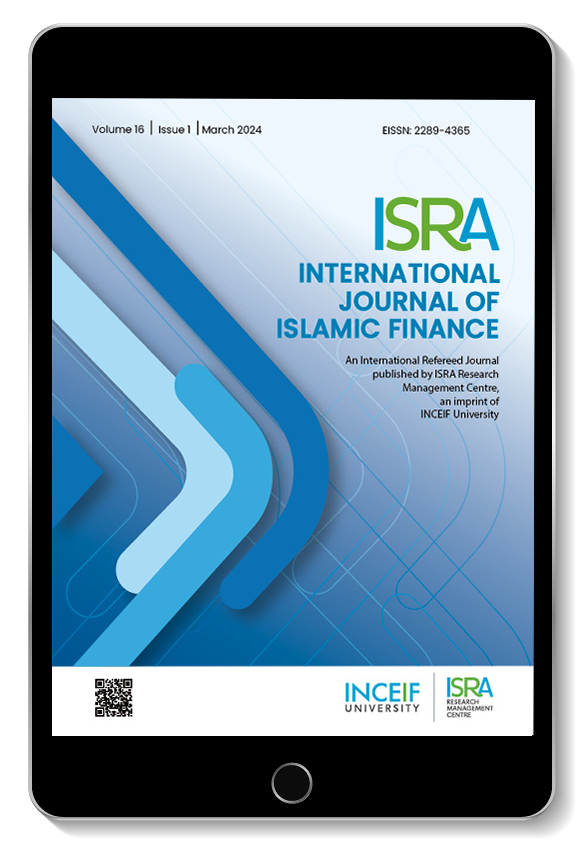wa的立法规定ṣ马来西亚和印度尼西亚的iyyah wājibah:它们在实践中有多大不同?
IF 2.8
Q2 BUSINESS, FINANCE
引用次数: 1
摘要
目的本研究旨在检验和比较waṣiyyah wājibah(强制遗赠)(WW)在马来西亚和印度尼西亚的实践。设计/方法/方法这是一项探索性的定性研究,采用了主题分析方法。分析了马来西亚的六项穆斯林遗嘱(国家)法令[Enakmen Wasiat Orang Islam(Negeri)]、印度尼西亚的伊斯兰法律汇编(Kompilasi Hukum Islam)、两项宗教事务裁决和每个国家的一个法庭案件。数据来自政府官方网站和其他可靠的搜索引擎。调查结果首先,调查结果表明,在受益人权利的数量方面,两国的WW实践是相似的。然而,在受益人类型和遗产分配方式方面,两国的做法各不相同。其次,这项研究显示了WW作为遗产规划工具的潜力,可以补充每个国家的现有工具,特别是在涉及到目前为止无权成功的家庭成员时ḍ (伊斯兰继承法)。实际含义需要制定有关WW的相关法律法规,以保障受抚养人的福祉。两国在实践中的差异可以作为将WW范围和背景扩大到其他穆斯林国家的指导方针。原创性/价值本研究首次尝试比较两个穆斯林占多数的国家之间的WW,重点关注相关法律、法院案例和法规。本文章由计算机程序翻译,如有差异,请以英文原文为准。
Legislative provisions for waṣiyyah wājibah in Malaysia and Indonesia: to what extent do they differ in practice?
PurposeThis research aims to examine and compare differences in waṣiyyah wājibah (obligatory bequest) (WW) practices in Malaysia and Indonesia.Design/methodology/approachThis is an exploratory qualitative research, employing a thematic analysis approach. Six Muslim Wills (State) Enactments [Enakmen Wasiat Orang Islam (Negeri)] in Malaysia, Islamic Law Compilation (Kompilasi Hukum Islam) in Indonesia, two fatwas (ruling in religious matters) and one court case from each country are analysed. Data is collected from official government websites and other reliable search engines.FindingsFirst, the findings show that the WW practice in both countries is similar regarding the quantum of the beneficiaries' entitlement. However, the practice varies between both countries in terms of the types of beneficiaries and how the bequest is distributed. Second, this study shows the potential of WW as an estate planning instrument to complement the existing instruments in each country, especially when addressing family members who are not entitled to succeed by farāʾiḍ (Islamic inheritance law).Practical implicationsThe provision of relevant laws and regulations regarding WW needs to be formulated to guarantee the well-being of dependants. The differences in practice between the two countries can be a guideline to expand the WW scope and context to other Muslim countries.Originality/valueThis study is the first attempt to compare WW between two Muslim-majority countries focusing on relevant laws, court cases and regulations.
求助全文
通过发布文献求助,成功后即可免费获取论文全文。
去求助
来源期刊

ISRA International Journal of Islamic Finance
BUSINESS, FINANCE-
CiteScore
3.40
自引率
17.40%
发文量
18
审稿时长
20 weeks
期刊介绍:
It is the aspiration of the editorial committee that IJIF achieves the highest rank in quality and substance. It is thus our aim that the journal be carried in the Thompson Reuters’ ISI and Scopus databases. By ensuring high standards in articles published in Islamic finance we ensure that further innovation and research is carried out and promoted in the Islamic finance industry and academia. IJIF publishes 2 issues per annum.
 求助内容:
求助内容: 应助结果提醒方式:
应助结果提醒方式:


